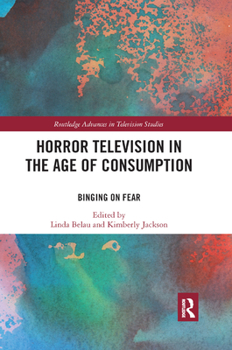Horror Television in the Age of Consumption: Binging on Fear
Characterized as it is by its interest in and engagement with the supernatural, psycho-social formations, the gothic, and issues of identity and subjectivity, horror has long functioned as an allegorical device for interrogations into the seamier side of cultural foundations. This collection, therefore, explores both the cultural landscape of this recent phenomenon and the reasons for these television series' wide appeal, focusing on televisual aesthetics, technological novelties, the role of adaptation and seriality, questions of gender, identity and subjectivity, and the ways in which the shows' themes comment on the culture that consumes them. Featuring new work by many of the field's leading scholars, this collection offers innovative readings and rigorous theoretical analyses of some of our most significant contemporary texts in the genre of Horror Television.





